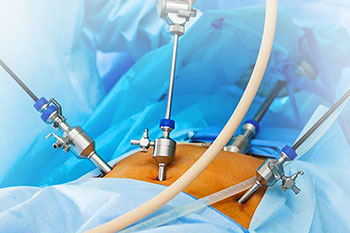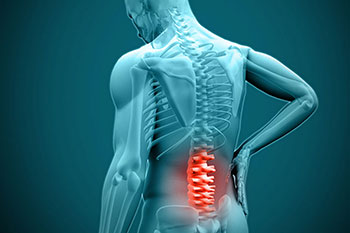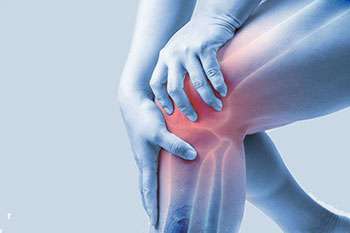Bariatric Surgery
Bariatric Surgery, also called weight loss surgery, is the process in which surgeons do operations on people who are facing severe obesity by reducing the size of the stomach to help them lose weight. Bariatric surgery can also provide major health benefits like, long-term weight loss, diabetes recovery, improvements in cardiovascular risk factors, reduction in mortality, high blood pressure and high cholesterol among many other diseases. Patients with obesity who choose to receive treatment are able to enjoy improved quality of life and a longer lifespan.
Why is Bariatric Surgery done?
Bariatric surgery is the most successful long-term treatment done to help lose excess weight and reduce the risk of life-threatening complications of obesity. Complications include diabetes, heart disease, sleep apnea, high blood pressure, Nonalcoholic fatty liver disease, nonalcoholic steatohepatitis. Bariatric surgery works by changing the way your body manages what you eat, allowing for healthy eating and lifestyle choices to effectively lose weight and maintain health. This surgery is performed only after you have tried to lose weight by improving your diet and exercise habits.
What conditions can Bariatric Surgery treat?
- High cholesterol (Hyperlipidemia)
- High blood pressure (Hypertension)
- High blood sugar (Hyperglycemia)
- Type 2 diabetes
- Heart disease
- Kidney disease
- Obstructive sleep apnea
- Osteoarthritis
- Non-alcohol related fatty liver disease (NAFLD)
- Nonalcoholic steatohepatitis (NASH)
- Gastroesophageal reflux disease (GERD)
- Cancer
Types of Bariatric Surgery
Bariatric Surgery works in a variety of ways, either by limiting the amount of food the stomach can hold, by reducing the body’s ability to absorb nutrients, or by a combination of both. Gastric bypass, sleeve gastrectomy, adjustable gastric band, and duodenal switch are the most prevalent kinds of bariatric surgery.
Gastric Bypass: Gastric Bypass is a type of weight loss surgery in which a small pouch is created from the stomach and the newly formed pouch is connected directly to the small intestine. Gastric bypass surgery is performed when diet and exercise have failed or when you have major health problems as a result of your weight.This surgery limits the amount of food the stomach can hold, as well as restricts absorption of calories and nutrients.
Sleeve Gastrectomy: Sleeve Gastrectomy is a surgical weight-loss procedure which involves inserting small instruments through multiple small incisions in the upper abdomen. Approximately 80% of the stomach is removed during a sleeve gastrectomy, leaving a tube-shaped stomach roughly the size and shape of a banana.
Gastric Band: Gastric Banding is a type of weight loss surgery in which a silicone band is placed around upper part of the stomach which creates a smaller pouch above the band. This reduces the size of the stomach and reduce food intake. Less food can be stored and the patient can feel full faster.
Duodenal Switch: Duodenal Switch is a weight loss surgery for severely obese people that combines sleeve gastrectomy and intestinal bypass surgery. This surgery modifies your stomach and your small intestine. It limits the amount of food the stomach can absorb and the amount of nutrients the small intestine can absorb from what you eat.It also reduces the hunger hormones that the stomach and small intestine normally produce.
Who can undergo Bariatric Surgery?
You may qualify for weight loss surgery if you have:
- If you have a body mass index (BMI) of 40 or higher,
- If you have a BMI between 30 and 35 and an obesity-related condition, such as heart disease, diabetes, high blood pressure or severe sleep apnea.
- If you are unable to achieve a healthy weight loss for a period of time
Bariatric surgery is not suitable for everyone who is severely overweight. You may need to follow certain medical guidelines to receive weight loss surgery. You will likely go through extensive screening to see if you qualify. You must also be prepared to make permanent changes to lead a healthier lifestyle.
What kind of post-operative care receive after Bariatric Surgery?
After bariatric surgery, you are usually not allowed to eat for 1-2 days to allow the stomach and digestive tract to heal. You ave to follow a certain diet for few weeks. The diet starts with only liquids, then progresses to purees and very soft foods, and finally to regular foods. You may have many restrictions on how much and what you can eat and drink. You will also have frequent medical checkups in the first few months after bariatric surgery to monitor your health.
The latest Technologies used for Bariatric Surgery are
Robotic Procedures
One of the most exciting bariatric innovations is the introduction of surgical robots. These devices provide the surgeon with exceptional precision, augmenting and enhancing the surgeon’s natural abilities to continuously improve the accuracy and efficiency of bariatric surgery. These robots also benefit the surgical profession by improving safety and ergonomics to help address the growing challenge of physician burnout plaguing the medical industry.
Interactive and Adaptive Technology
Improved patient engagement has become an important aspect of bariatric treatment. Mobile health technology focused on SMS-based interventions, but recent innovations have unlocked the potential of real-time sensing to create adaptive interventions. These adaptive interventions use wearable sensors wirelessly connected to smartwatches, smartphones, and computers to continuously track patient behavior without manual input.
Artificial Intelligence
Artificial intelligence is at the forefront of numerous technological advances across the healthcare industry. Algorithms that allow computers to learn and perform cognitive functions previously accomplished only by the human brain offer many possibilities for bariatric treatment.
Acceptance-Based Behavioral Approaches
Weight gain after bariatric surgery is the most common challenge. This can lead to the loss of benefits gained from surgery, which can have adverse effects on patient health and even dangerous outcomes. Leading research in ABBTs equips patients with specialized psychological skills to improve long-term adherence to diet and exercise programs.
Get In Touch
Let’s connect and find better solution for your medical care















